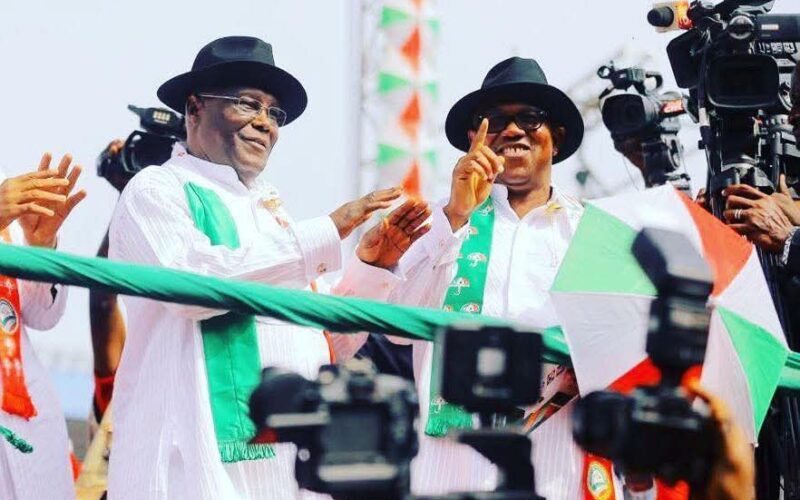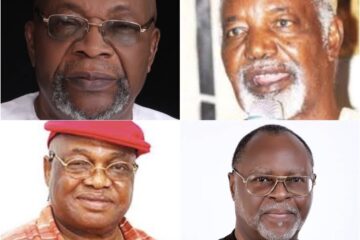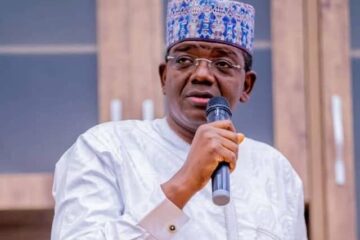Why Peter Obi and Atiku Abubakar’s 2027 Chances Are Slim
BY CHIONYE HENCS ODIAKA
As Nigeria approaches another general election cycle in 2027, the nation’s political terrain is once again heating up. With opposition figures reportedly forming coalitions to unseat the incumbent government, names like Peter Obi and former Vice President Atiku Abubakar are being floated as potential flagbearers.
Some political analysts argue that Peter Obi, the Labour Party’s 2023 presidential candidate, remains the only realistic challenger capable of defeating the incumbent. While such claims held more weight prior to the last election, the current political realities particularly the informal, but deeply entrenched principle of power rotation tell a different story.
The Zoning Tradition and Why It Matters
Though Nigeria is governed by a democratic constitution, its political stability rests in part on an unwritten but widely respected understanding: the presidency should rotate between the north and the south. This power-sharing principle, often referred to as “zoning,” is not enshrined in law but has evolved as a crucial mechanism to foster national unity, prevent domination by any single region, and guarantee inclusiveness in governance.
In 2023, the All Progressives Congress (APC) honoured this principle by zoning its presidential ticket to the south following eight consecutive years of northern leadership. That decision led to the emergence of a southern president and was broadly accepted as necessary to maintain the country’s fragile federal balance.
Fast-forward to 2027: the sitting president, still in his first term, will not have completed the customary eight-year cycle. It is both politically sensitive and strategically wise to allow him the opportunity to finish what has become the standard two-term expectation. The idea of replacing him with another southern candidate, or worse, with a northern one, would upset the carefully maintained regional equilibrium.
The Precedent of Yar’Adua and Jonathan
To understand the implications of disrupting this balance, one need only revisit the political controversy following President Umaru Musa Yar’Adua’s death in 2010. Yar’Adua, a northerner, had served just three years in office when his southern deputy, Goodluck Jonathan, assumed the presidency and later contested in 2011.
Many in the north felt the region had been short-changed, and the resulting tensions contributed to widespread dissatisfaction and accusations of political injustice. Even though Jonathan was later defeated by Muhammadu Buhari in 2015, the disruption of the power rotation contributed significantly to a sense of northern political alienation. Had Jonathan served a full eight years in addition to Yar’Adua’s remaining term, the repercussions could have been far worse.
Atiku’s Contradiction
Former Vice President Atiku Abubakar’s rumoured interest in the 2027 race raises a similar dilemma. If Atiku respects the zoning convention, one he himself invoked in 2011 when he opposed Jonathan’s candidacy, then it would be inconsistent for him to now seek the presidency before the south completes its cycle.
Attempting to reassert northern leadership in 2027 would not only be seen as a political overreach, but would also likely fracture any potential coalition seeking national support. Southern leaders and voters are unlikely to back such a move, making Atiku’s path to the presidency even narrower.
The Peter Obi Factor
Peter Obi’s rising profile cannot be denied. His 2023 performance energised a large, youth-driven base and brought fresh perspectives to national discourse. However, his southern origin poses a challenge in 2027 if the incumbent president is still seeking re-election.
To nominate another southern candidate, especially one who may seek an additional eight years, would violate the unwritten rotation principle and risk political upheaval. It could alienate northern stakeholders who perceive such a move as monopolising power in the south, thereby deepening the country’s regional fault lines.
Why Strategic Defections Matter
The recent defection of several southern governors and high-profile politicians from the Peoples Democratic Party (PDP) to the APC is telling. While some may view these defections as opportunistic, they may also reflect a calculated political strategy: ensuring that the south retains the presidency for the full eight-year cycle.
These moves are not merely about access to federal power; they may also serve to reinforce the power rotation principle by rallying support behind the current administration regardless of its performance, to prevent a premature return of power to the north.
Leadership vs Timing
This debate is not fundamentally about whether Peter Obi or Atiku Abubakar is a competent leader. It is about timing, political context, and the overarching need to maintain Nigeria’s fragile political equilibrium. Competence matters, but so does honouring the informal agreements that have kept the nation’s diverse regions politically engaged and relatively peaceful.
To abandon this arrangement, even for a charismatic or reform-minded candidate, could unleash political tensions that the country is not prepared to handle.
The Bigger Picture
In the long run, Nigeria must strive for a political culture where leadership is determined by merit, vision, and competence, not ethnicity or regional origin. But until such a culture is institutionalized, the zoning formula remains an essential pillar of national stability.
The 2027 election is not merely about electing a leader. It is a test of Nigeria’s political maturity and its commitment to equity, fairness, and unity. Breaking the rotation arrangement could do more harm than good, regardless of the candidate’s appeal.
Chionye Hencs Odiaka is a humanitarian and emergency management professional with a deep interest in Nigerian politics, governance, and national stability. He writes from a public policy and development perspective. He can be contacted via hencschionye@gmail.com




